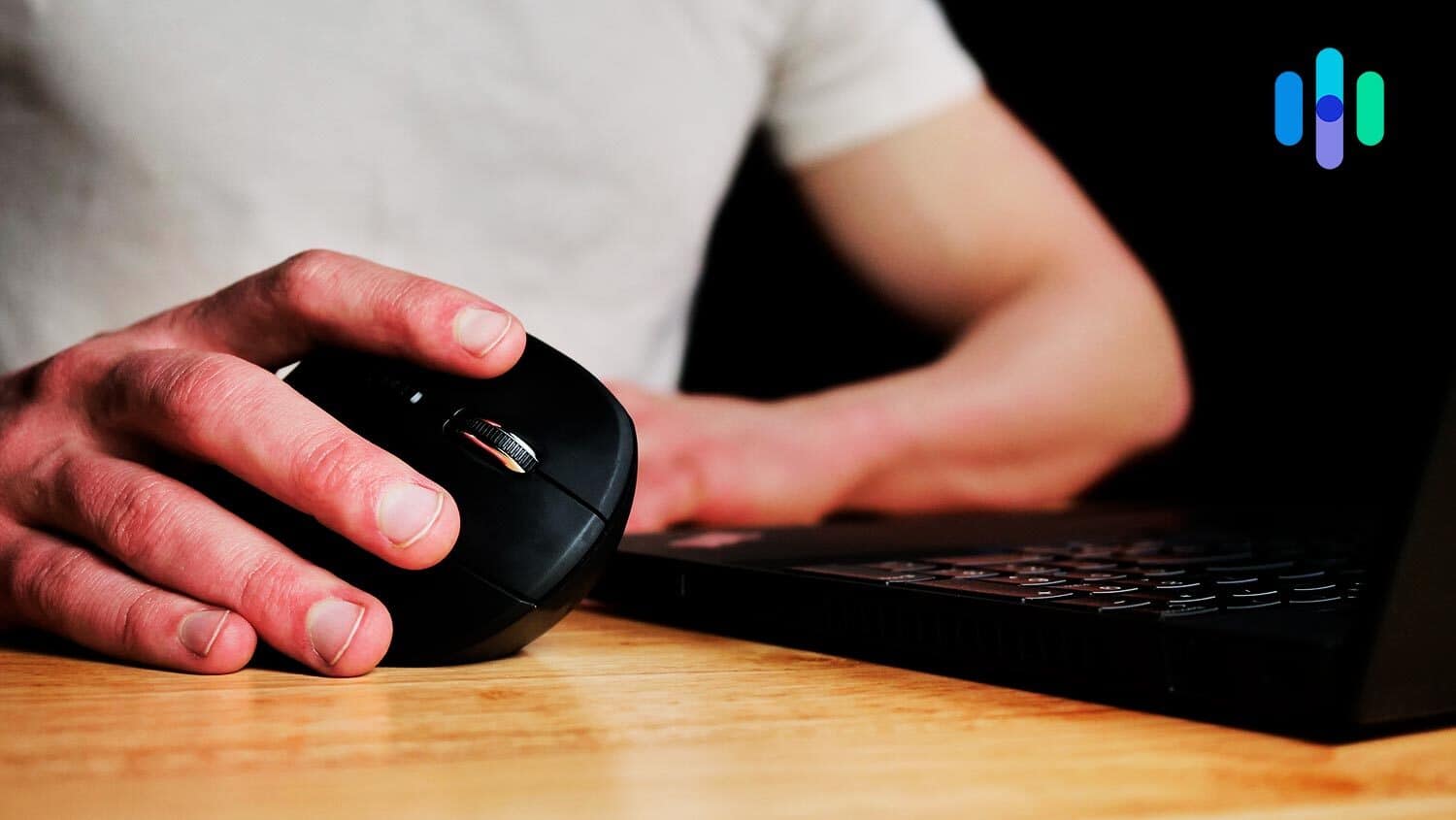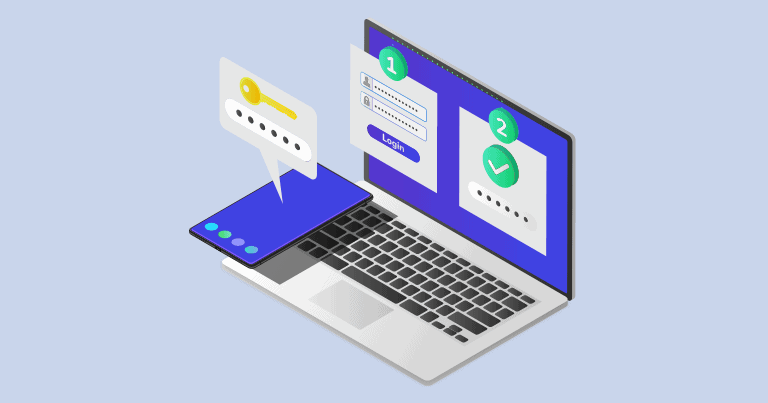Cash app is a payment app that stores money in a digital wallet. That alone should tell you that before signing up, you have to look into whether it’s safe and secure or not. Moreover, Cash App also stores users’ personal information. That’s another big reason to check how safe it is.
As cybersecurity experts and personal data privacy advocates, we dug around to uncover just how safe (or not) Cash App is. We also looked into potential dangers of using it and how one can enjoy a more secure Cash App experience. You’ll find the details of our findings in this guide, so keep on reading.
Is Cash App Safe?
We’ll give you the answer right off the bat: Yes, Cash App is safe. There are a few caveats that we’ll go over later on, but in general, it’s safe to sign up and store money in a Cash App wallet. Here are the highlights of why our experts believe it’s safe:
- Cash App uses encryption to secure customers’ data in transit to its servers, to keep safe from man-in-the-middle (MITM) attacks.
- Cash App encrypts personal data stored in its servers.
- There’s advanced fraud detection in place that detects suspicious transactions through the use of algorithms.
Another thing to note is that Cash App is compliant with Level 1 of the Payment Card Industry Data Security Standard. Sounds fancy, right? That means it complies with applicable security requirements to minimize the risk to the Visa system. This security standard applies to any business that stores, processes, and transmits credit card and cardholder information. Since Cash App is Level 1 compliant — the highest level there is — it’s certified as fully capable of securely processing over 6 million transactions per year1.
Suffice to say, Cash App meets our safety and security standards.
Cash App and Safety Risks
Payment apps are prime targets for scammers and fraudsters looking to run off with peoples’ hard-earned money. We discussed this when we assessed PayPal’s safety and Venmo’s safety, and Cash App is similar in many ways.
When the COVID-19 pandemic hit, COVID-related scams proliferated, and Cash App users were severely affected. According to the Federal Trade Commission, complaints against Cash App skyrocketed by 472 percent in 2020 compared to 20192. The main driving factor of those complaints, however, wasn’t Cash App itself, but rather the fact that scammers used the payment app for fraudulent transactions.
Here are just a few of the scams and MOs fraudsters use to lure Cash App users into sending them money.
- Fake phone support: When Cash App reduced its workforce during the pandemic, scammers quickly filled in by posting fake phone support numbers. If someone called in, the scammer would ask for sign-in credentials, Cash Card details, or any valuable information they could use to commit identity theft or steal Cash App funds.
- #CashAppFriday: In 2019, Cash App started doing Twitter sweepstakes on Fridays, identified by the hashtag #CashAppFriday. Scammers, however, created fake threads using the official hashtag, and then notified “winners” that they have to send a small amount to a Cash App account to claim their prizes.
- Fake grants and programs: Similar to fake Cash App Friday scams, scammers also use phony grants and programs to steal funds. For example, a scammer might contact you on social media and tell you that you’ll receive a prize for being vaccinated against COVID. Before you get the prize, however, you’ll need to send a small amount of money. These phony programs seem plausible because there are similar, legitimate programs.
- Quick-cash investment scams: With rising living costs, it’s easy to see why this type of scam is so common. Scammers contact their victims through social media, offering them investment schemes that would turn $10 into hundreds or even thousands of dollars. They say they will invest the money to make it grow, perhaps in cryptocurrencies or NFTs, but that’s only a ploy to entice victims to send them funds.
- Fake listings: Cash App is especially vulnerable to scammers who use fake product listings but don’t intend to deliver to buyers. You’ll often meet these types of scammers in online marketplaces, where they sell products but accept Cash App only. Cash App is one of their favorite payment apps because it doesn’t offer buyer protection. There’s little you can do to get your money back if the item you paid for doesn’t arrive.
FYI: While most scams result in only minimal financial losses, a Cash App user in North Carolina lost $24,000 to fake phone support scammers. The scammers got the money he had stored in his Cash App account, plus more than $2,000 from his checking account linked to Cash App.
Cash App and Identity Theft
While your money on Cash App might be your biggest concern, it’s not the only thing that can be stolen. Some criminals are after something far more valuable – your personal data.
Think of this: Why try to steal $100 from your Cash App wallet when they can steal your personal information and use it to fraudulently apply for a $1,000 loan in your name? In the words of Dwight Schrute, “Identity theft is not a joke, Jim!”.
Identity thieves target people’s personal information, online accounts, Social Security numbers, and a bunch of other types of personally identifiable information. For Cash App users, phishing is the No. 1 risk, which could lead to the hacking of their Cash App account and loss of funds.
Phishing attacks involve social engineering. Cybercriminals use different means — such as emails, texts (also known as “smishing”), and social media — to execute phishing attacks. The goal is to cajole their victim into giving them account information. They can get pretty creative. They could pose as a Cash App representative, use copycat websites that look like Cash App’s official site, or write emails that mimic a system-generated notice from Cash App. No matter the means, they’re out to get your Cash App login credentials.
>> Explore further: Is Webull Safe?
Once they have your login credentials, they can either log in to your account and steal your funds, or sell your account information on the dark web. Either way, they’ll come away the winner and you the loser.
Expert Tip: To protect yourself from phishing, we recommend signing up with an identity protection service. This type of service monitors your personal, financial, and credit information to detect signs of identity theft. They look at areas where stolen identities and account information often end up, such as the dark web and online marketplaces. We recommend Aura due to its proactive approach that includes antivirus software and a virtual private network (VPN). You can read our Aura review for more information.
Avoiding Cash App Scams
We have good news and bad news. The bad news is that Cash App can do little to prevent scams from happening. To its credit, Cash App has safety measures to — at the very least — discourage scammers from using its platform. It now requires identity verification to access certain features, it has a fraud detection algorithm in place, and it publishes safety tips online. However, scammers don’t target their victims on Cash App itself, but through other means of communication, like social media sites and emails. Those are beyond Cash App’s control.
The good news is that you are in control. You can avoid falling victim to scams simply by being a mindful and vigilant internet user. The following tips can help you with that.
- If something is too good to be true, it probably is. We’ve heard this advice hundreds of times, and it’s sound. If someone offers you quick cash, prizes, investments, or any incentive that sounds too good to be true, it’s better to steer clear, especially if it involves giving them your Cash App account.
- Check the email address of the sender. Phishing scammers may be able to imitate Cash App’s email format, but they can’t imitate email addresses. Official Cash App emails come from addresses ending in “@square.com,” “@squareup.com,” and “@cash.app.”
- Be picky with your transactions. As a good rule of thumb, use Cash App to send money only to people you know and trust. Transactions with marketplace sellers are much better done in person, where you can see and check the item you’re buying. Besides, Cash App has no buyer protection, so we recommend limiting the purchases you make through Cash App.
- Double-check your transactions. If you must transact with strangers through Cash App, be sure to check the recipient’s details. One red flag is when the name they give you doesn’t match the name on their Cash App account. They could give you a fake identity to hide their real identity, which is obviously suspicious.
- Use two-factor authentication. A big part of keeping your Cash App account safe is making sure no one else gets access to it. Cash App has a two-factor authentication (2FA) where anyone who tries to login to your account will be required to enter a one-time PIN sent to your email or phone number. Even if someone finds out your password, they won’t be able to log in without your authentication.
- Don’t reuse passwords. Even with 2FA, you should use a unique and secure password for your Cash App account. You shouldn’t reuse passwords you’re already using for other accounts. You can use our Random Password Generator to create a strong and unique password – don’t worry, we won’t store your generated passwords.
- Enable payment verification and notification. Cash App’s Security Lock can be modified so that it’ll require your passcode before every transaction. You should also enable notifications after each transaction to immediately detect unauthorized transactions.
- Bolster your digital security. Although the use of hacking and malware are less common ways to obtain login credentials, you should use a VPN when using Cash App on public Wi-Fi networks. Here’s our roundup of the Best VPNs of 2025. You should also have an always-on antivirus app that detects malware attacks in real time to block spyware.
Pro Tip: When we reviewed NordVPN, we found that it uses 256-bit AES encryption for user traffic. This encryption method is practically unbreakable. Even if a hacker finds data packets from your device when you’re connected to a public Wi-Fi network, the encryption makes it impossible for them to see what’s inside the data packets.
Cash App And Your Personal Information
With the right knowledge, tools, and mindset, we can avoid falling victim to Cash App scams. There is another safety-related aspect, however, that only Cash App has control over, and that’s the collection, processing, and sharing of our personal data.
Data Collection
Cash App adheres to federal laws requiring payment apps to verify the identity of its users in an effort to catch money laundering, especially by criminal and terrorist organizations. This identity verification process requires the collection of sensitive information, including your full name, the last four digits of your Social Security number, and your date of birth. Additionally, to set up a Cash App account, you need to provide some personal and financial information, including your phone number, email address, and bank account information.
Data Processing and Storage
As mentioned earlier, Cash App uses data encryption to secure personal data while in transit to its servers. The data is stored in Cash App’s own servers as well as servers from third-party service providers located in Japan, Canada, the United States, European Union countries, and other countries. The company takes administrative, technical, and physical safeguards to protect the data from misuse, theft, disclosure, and unauthorized access.
While all that sounds good, Block, which is Cash App’s parent company, recently filed a breach notification to the Securities and Exchange Commission3. This filing details the security breach that occurred when a former Cash App employee illegally accessed and downloaded reports related to Cash App Investing. The reports included full names and brokerage account numbers, but fortunately, no other personally identifiable information was stolen.
Data Sharing
Aside from collecting and storing your data, Cash App may also share it with third parties under certain situations. You can find a more detailed list of when Cash App may share your data in its privacy policy, but to summarize, Cash App may share your data with the following:
- Other users, such as those you transact with
- Affiliates and group companies operating under the umbrella of Block
- Service providers to Cash App to maintain and improve the services
- Law enforcement to comply with laws and regulations
- New owners, co-owners, and operators in case of corporate changes
- Other companies that deliver services on Cash App’s behalf
Recap: Can You Trust Cash App?
Overall, we can say that Cash App is a trustworthy company. It runs a legitimate payment processing business, it has a secure transaction structure, and with the exception of the recent security breach, Cash App has a solid track record. As long as you do your part in securing your account, staying away from scams, and protecting your personal information, you should not have to worry when using Cash App.
Cash App FAQs
Before we end this report on Cash App’s safety, let’s answer some frequently asked questions about the service.
-
Can you cancel a Cash App payment sent to the wrong recipient?
In some cases, you can cancel a Cash App payment sent to the wrong recipient. Here’s how:
- Open Cash App.
- Locate and tap the Activity Tab with the clock icon.
- Select the transaction you want to cancel.
- Tap the horizontal three-dot menu.
- Select “Cancel a Payment” and confirm.
If the “Cancel a Payment” option isn’t available, you can contact Cash App’s customer support to request a refund.
-
Is my Cash App balance insured?
Generally, your Cash App balance isn’t insured. However, if you have a Cash Card, your account balance is covered by the Federal Deposit Insurance Corporation, which covers up to $250,000 per Cash App user.
-
Can I get my money back if I’m scammed?
If you are scammed, you can request a refund from Cash App. The refund, however, is not guaranteed.
-
What happens if I don’t verify my identity with Cash App?
If you don’t verify your identity with Cash App, you can still use its services, but with limitations. You can send only $250 per week and receive $1,000 per month. Verifying your account removes the limit for amounts received and increases your sending limit to $7,500.






